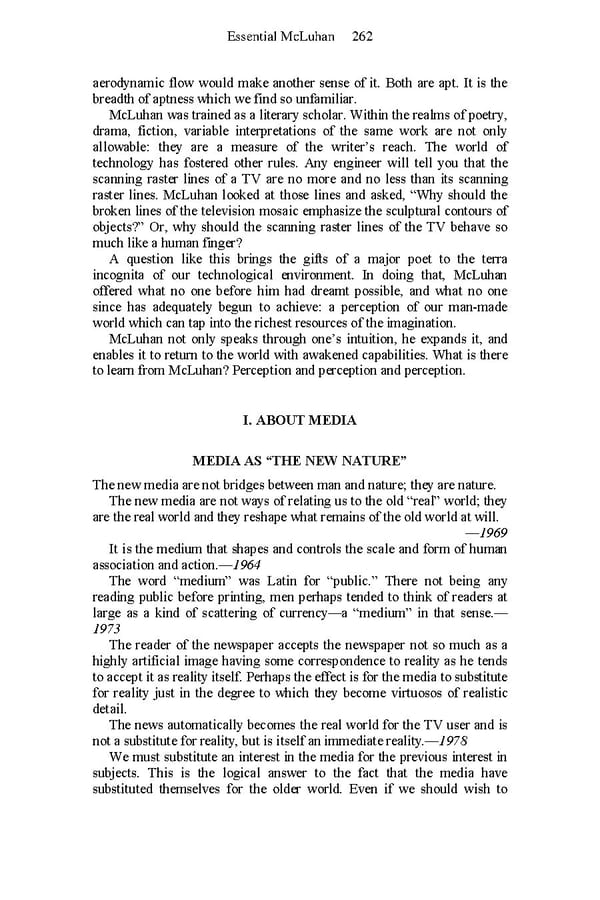Essential McLuhan 262 aerodynamic flow would make another sense of it. Both are apt. It is the breadth of aptness which we find so unfamiliar. McLuhan was trained as a literary scholar. Within the realms of poetry, drama, fiction, variable interpretations of the same work are not only allowable: they are a measure of the writer’s reach. The world of technology has fostered other rules. Any engineer will tell you that the scanning raster lines of a TV are no more and no less than its scanning raster lines. McLuhan looked at those lines and asked, “Why should the broken lines of the television mosaic emphasize the sculptural contours of objects?” Or, why should the scanning raster lines of the TV behave so much like a human finger? A question like this brings the gifts of a major poet to the terra incognita of our technological environment. In doing that, McLuhan offered what no one before him had dreamt possible, and what no one since has adequately begun to achieve: a perception of our man-made world which can tap into the richest resources of the imagination. McLuhan not only speaks through one’s intuition, he expands it, and enables it to return to the world with awakened capabilities. What is there to learn from McLuhan? Perception and perception and perception. I. ABOUT MEDIA MEDIA AS “THE NEW NATURE” The new media are not bridges between man and nature; they are nature. The new media are not ways of relating us to the old “real” world; they are the real world and they reshape what remains of the old world at will. —1969 It is the medium that shapes and controls the scale and form of human association and action.—1964 The word “medium” was Latin for “public.” There not being any reading public before printing, men perhaps tended to think of readers at large as a kind of scattering of currency—a “medium” in that sense.— 1973 The reader of the newspaper accepts the newspaper not so much as a highly artificial image having some correspondence to reality as he tends to accept it as reality itself. Perhaps the effect is for the media to substitute for reality just in the degree to which they become virtuosos of realistic detail. The news automatically becomes the real world for the TV user and is not a substitute for reality, but is itself an immediate reality.—1978 We must substitute an interest in the media for the previous interest in subjects. This is the logical answer to the fact that the media have substituted themselves for the older world. Even if we should wish to
 Essential McLuhan Page 268 Page 270
Essential McLuhan Page 268 Page 270